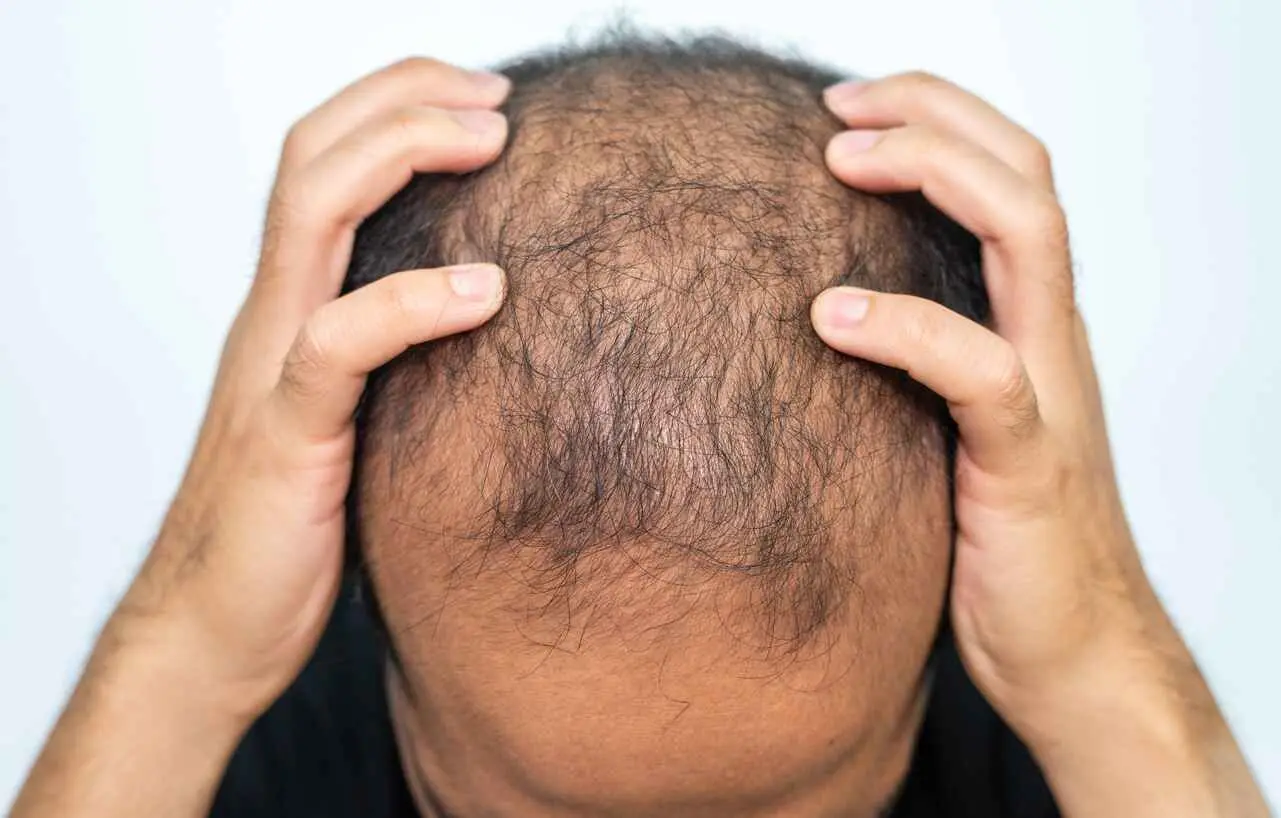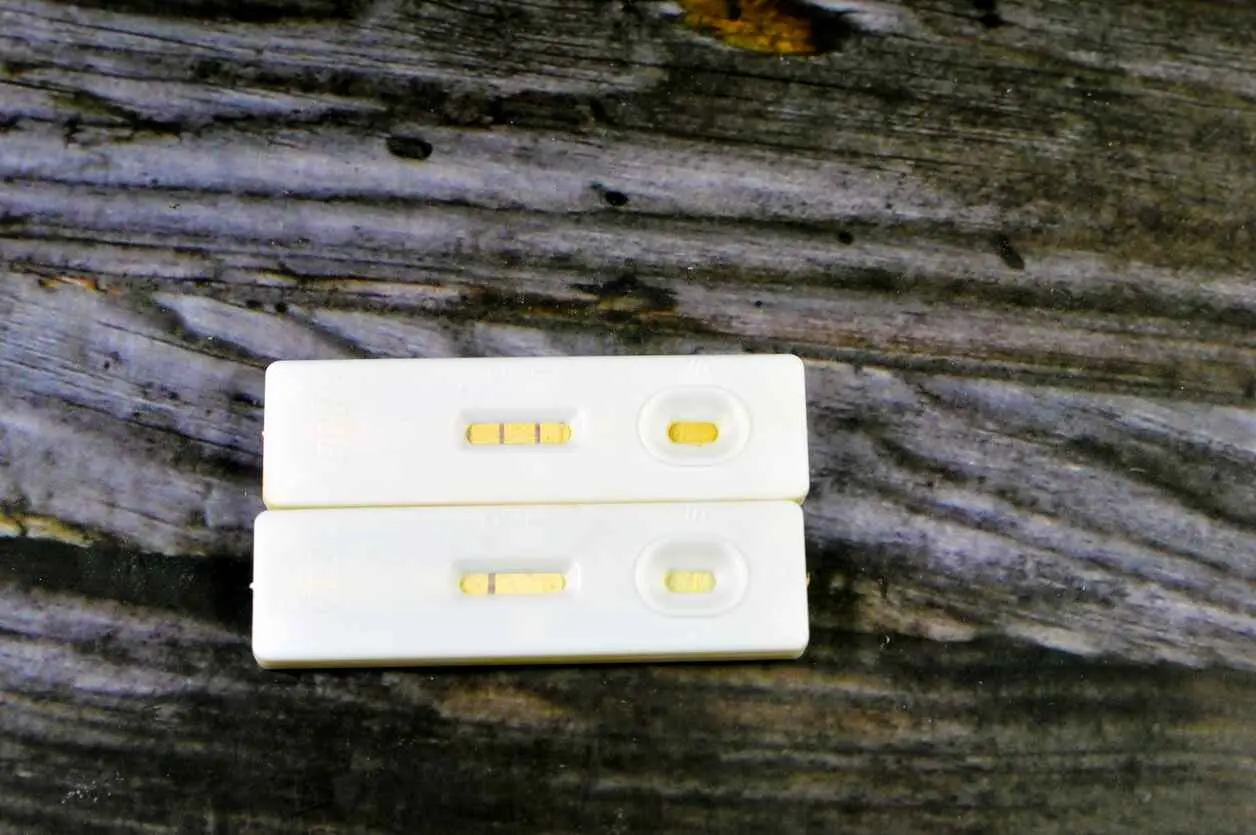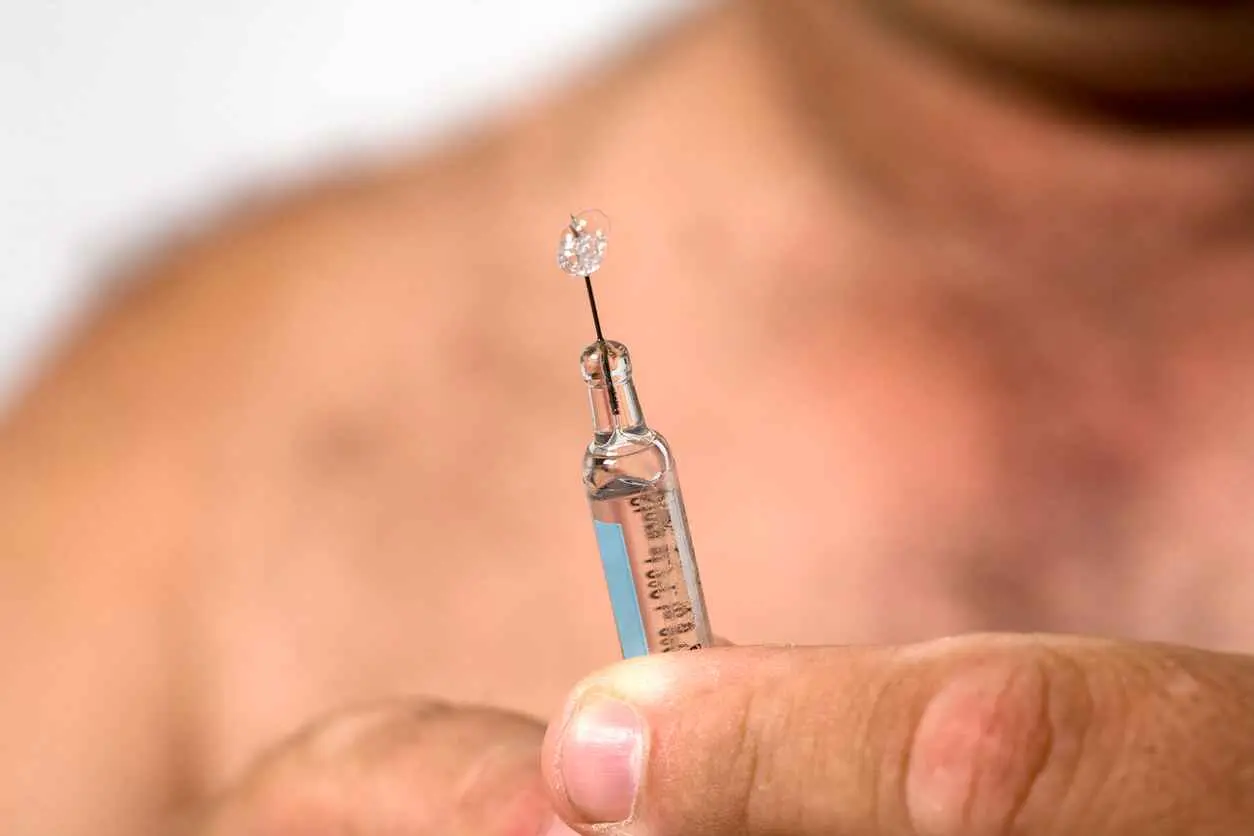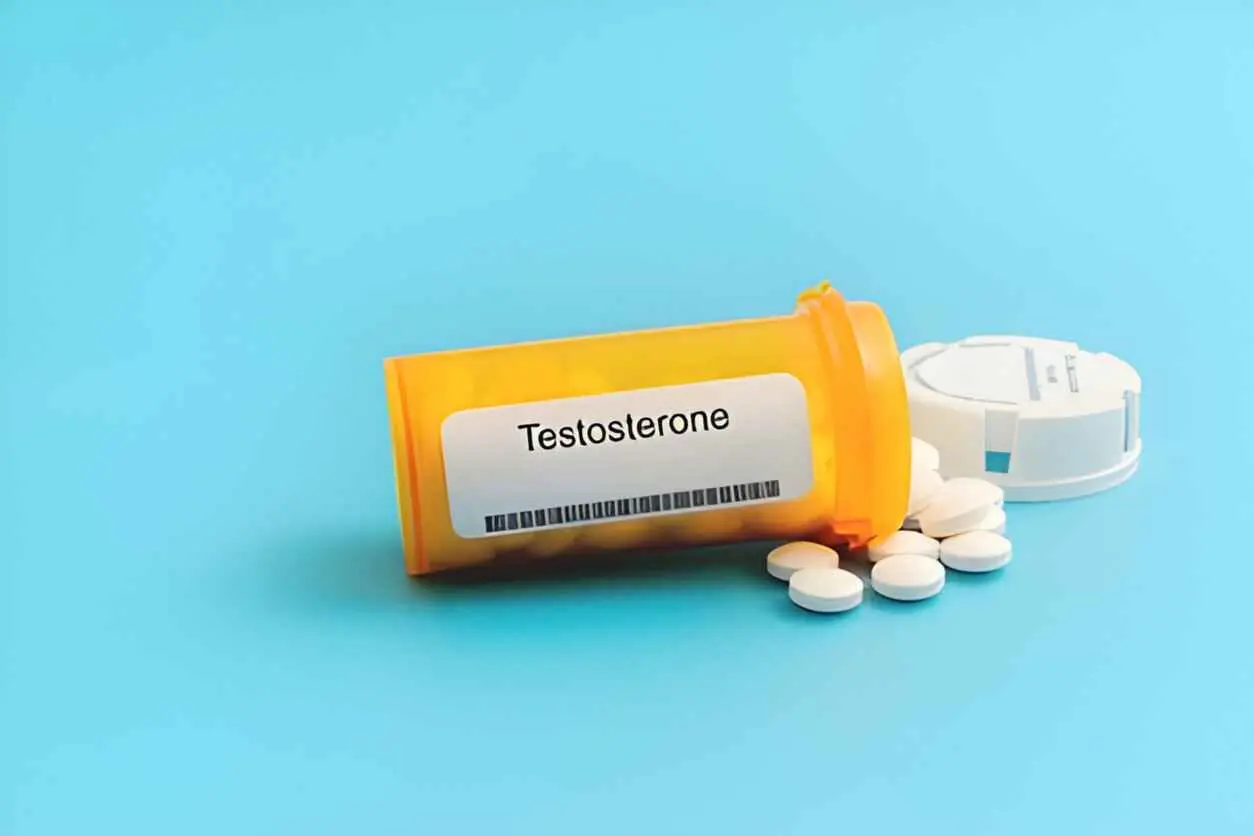
Understanding The Link Between Male Pattern Hair Loss And Hormones
What Is The Relationship Between Low Testosterone And The Immune System?
When testosterone levels are too low, the body may find it harder to fight off infections, which means you could get sick more often and take longer to recover.
Most people know testosterone as the hormone linked with strength, energy and sex drive. But it also plays a vital role in the immune system's function. When testosterone levels drop the body often makes more inflammation. This is when the immune system produces certain chemicals, such as IL-6 and TNF-α, that can make you feel tired and increase your likelihood of catching illnesses. Research shows that men with low testosterone often have weaker immune responses. Other studies have found that restoring testosterone to a healthy level can reduce inflammation and enhance the function of immune cells (Nature study, 2024).
In this article, we will examine how low testosterone levels impact the immune system. We will examine what happens inside the body, why balance is so crucial, and what new research reveals about protecting both hormone health and the immune system.
Understanding Testosterone
Testosterone is a hormone made mainly in the testes in men, and in smaller amounts in the ovaries and adrenal glands in women. It is best known for its role in male growth and reproduction, but it also does many other essential jobs. Testosterone helps the body build muscle and bone, supports energy levels, influences mood, and affects how the body stores fat.
What many people do not realise is that testosterone also works with the immune system. The immune system is the body’s defence against infections and diseases. It utilises specialised cells, such as T cells and B cells, to identify and combat harmful germs. Research indicates that testosterone can influence the function of these cells and the level of inflammation produced by the body (Wikipedia).
Doctors often explain testosterone as part of a balance. If levels are too low, the body may produce excessive inflammation, which can cause people to feel unwell. If levels are too high, the immune system may not respond appropriately in other ways. This means maintaining a healthy level of testosterone is essential not only for energy and well-being, but also for a strong and balanced immune system (TCT Medical).
The Decline of Testosterone
Testosterone levels naturally shift throughout a man’s life. They peak during adolescence and early adulthood, then gradually decline starting around age 30. While this decrease is a regular part of ageing, certain health conditions—such as liver disease, HIV, and autoimmune disorders- can also accelerate or worsen testosterone loss.
Common Causes of Low Testosterone
Several factors can contribute to reduced testosterone levels, including:
- Natural aging
- Nutritional
- Hormonal
- Chronic
- Poor sleep or sleep
- Obesity
- Smoking
- Excessive alcohol use
What Counts as “Low T”?
In healthy men, testosterone levels typically range between 300 and 1,000 nanograms per deciliter (ng/dL). Levels below 300 ng/dL are considered low, a condition commonly referred to as low testosterone (low T).
Why Testosterone Matters
Testosterone plays a vital role in overall health and well-being. When levels are too low, you may experience:
- Fatigue and low energy
- Erectile dysfunction or reduced sexual performance
- Decreased muscle mass and strength
- Lower sex drive
- Mood swings, irritability, or depression
- Reduced sperm count
- Weaker bones (loss of bone density)
- Poor body fat distribution
- Lack of motivation
- Trouble with memory and focus
These symptoms vary from person to person, but they can significantly affect quality of life.
What to Do if You Suspect Low T
If you’re struggling with symptoms of low testosterone, speak with a healthcare provider. They can run tests to confirm your levels and recommend solutions, ranging from lifestyle changes (improving diet, sleep, and exercise) to testosterone replacement therapy (TRT).
Testosterone and the Immune System
Emerging research suggests that both too little and too much testosterone can influence immune function. This means maintaining balanced levels is key, not just for energy, mood, and sexual health, but also for long-term overall health.
How Testosterone Levels Affect the Immune System
It can sometimes be hard to picture how hormones and the immune system are linked. The tables below make it easier to see how testosterone levels affect the body's response to infections and inflammation.
Table A: Testosterone Levels and the Immune System
|
Testosterone Level |
Inflammation |
Immune Cell Activity |
What It Means for Health |
|
Low |
High levels of inflammation chemicals, such as IL6 and TNFα |
Fewer T cells and a weaker immune response |
Higher chance of getting sick and slower recovery |
|
Healthy |
Balanced inflammation |
Regular T cell activity and stronger defences |
Good protection against illness |
|
High |
Inflammation may be reduced, but it can weaken some defences |
Some immune responses may not work as well |
May lower vaccine response, but supports growth and reproduction |
Table B: What Research Shows
|
Type of Study |
Key Finding |
|
Vaccine study at Stanford University |
Men with high testosterone had weaker responses to the flu vaccine (Stanford Medicine) |
|
Infection risk in hypogonadism |
Men with low testosterone were more likely to have worse outcomes when infected (NCBI) |
|
Meta-analysis (2024) |
Low testosterone linked with fewer lymphocytes, an essential type of immune cell (Nature) |
|
Inflammation marker study |
Men with high levels of inflammatory markers were more likely to have low testosterone (Nature) |
|
Hormone therapy research |
Testosterone treatment changes how immune cells work and may lower harmful inflammation (Nature) |
These tables show that both very low and very high testosterone can affect the immune system in different ways. The healthiest immune response happens when testosterone is kept at a balanced level.
How the Immune System Works
Your immune system is your body’s defence team. It is made up of organs, tissues, cells, and special chemicals that work together to protect you from germs such as viruses and bacteria.
The immune system has two main parts:
- Innate immune system: this is your body’s first defence. It reacts quickly and fights off many kinds of germs in the same way each time.
- Adaptive immune system: this defence takes a little longer, but it is smarter. It learns to recognise specific germs and remembers them, so if they attack again, your body can fight them faster.
What the Immune System Does
Your immune system helps keep you healthy by:
- Spotting foreign invaders that should not be in the body
- Destroying harmful germs before they can make you ill
- Remembering past infections so it can respond more quickly in the future
Together, these defences keep your body strong and ready to fight off disease.
How Does Low Testosterone Affect the Immune System?
Testosterone doesn’t just affect energy, mood, or muscle growth; it also plays an integral part in how the immune system works. Research shows that having too little or too much testosterone can change the way your body fights off illness.
Testosterone and Immune Cells
Testosterone helps control how some immune cells behave:
- T cells: these attack viruses when they spot signs of infection.
- Natural killer cells: these attack harmful cells straight away, without needing a signal.
When testosterone levels are low, these cells may not work as well, making it harder for your body to defend itself against infections.
Testosterone and Inflammation
Low testosterone can also lead to long-term inflammation in the body. This can sometimes lead to autoimmune diseases, where the immune system accidentally attacks healthy cells. Conditions like rheumatoid arthritis have been linked to low testosterone in men.
Testosterone Receptors on Immune Cells
Many immune cells, such as macrophages (cells that “eat” germs) and neutrophils (cells that fight infection), have special receptors for testosterone. This means the hormone can directly affect how these cells work.
Testosterone also influences other processes, such as stress and metabolism, which can indirectly change the immune system's function.
What We Still Don’t Know
Although studies provide us with valuable insights, many of them have been small-scale or focused on specific groups of people. Scientists are still learning how low testosterone and the immune system are linked, and more research is needed to understand the connection entirely.
Factors That Affect Testosterone Levels and Immune Health
Many factors can affect your testosterone levels and the functioning of your immune system. These include:
- Food: Eating healthy foods provides your body with the necessary fuel.
- Sleep: your body needs 7-9 hours of sound sleep each night to rest and repair.
- Stress: Excessive stress can lower testosterone levels and increase susceptibility to illness.
- Exercise: Regular physical activity helps maintain your hormones' balance and strengthens your immune system.
- Pollution: Breathing in harmful chemicals can hurt your health.
- Medications: Certain medications can alter testosterone levels or impact immunity.
- Illness: Certain diseases can lower testosterone levels, making it more difficult for the body to fight infections.
How to Stay Healthy
You can help your body by:
- Learning ways to relax and manage stress
- Getting enough sleep each night
- Exercising regularly
Small, healthy choices each day can keep your hormones balanced and your immune system strong.
Benefits of Healthy Testosterone Levels
Having the right amount of testosterone is essential for your overall health. Here are some key benefits of balanced testosterone levels:
- Sexual health: helps with erections, sexual desire, and sperm production
- Strong bones: support bone strength and lower the risk of fractures
- Muscle growth: helps build and maintain muscle
- Better mood: reduces the risk of low mood or depression
- Healthy body shape: stops too much fat from building up around your organs
- More energy: boosts stamina and endurance
When testosterone levels drop, these benefits may be affected. Some men adjust to the changes, while others look for ways to restore their levels and feel healthier.
If you think you might have low testosterone (low T), it’s best to talk to a doctor or hormone specialist. They will review your health and medical history to determine the cause.
- If it’s due to weight gain, poor diet, or lack of sleep, lifestyle changes can often help
- If testosterone levels are very low and natural methods don’t work, your doctor may suggest testosterone replacement therapy (TRT)
Considering Testosterone Replacement Therapy (TRT)
TRT is a treatment where men with low testosterone take extra testosterone to bring their levels back to normal.
- Treatment is personalised: it’s based on your health, testosterone levels, and goals
- Your health will be closely monitored: doctors will check for side effects and ensure your levels remain balanced.
- Possible side effects: fluid retention, acne, and lower sperm count
TRT is usually a lifelong treatment. If you stop, your testosterone will return to its previous low levels.
Before starting TRT, it’s essential to talk with your doctor about:
- The benefits: what TRT can improve
- The risks: possible side effects and challenges
- The results: how TRT might affect you long term
- The cost: what you will need to pay for treatment
This way, you’ll understand the whole picture and can decide what’s best for your health.
Frequently Asked Questions Male Pattern Baldness, Testosterone and DHT
Can low testosterone weaken the immune system?
Yes, low testosterone can weaken the immune system by reducing T cell activity and increasing inflammation. This makes the body less effective at fighting infections and can also slow down the recovery process. Maintaining balanced testosterone levels supports a healthy immune response.
How does low testosterone affect inflammation in the body?
Low testosterone is associated with higher levels of inflammatory chemicals, such as IL-6 and TNF-α. This increase in inflammation can raise the risk of chronic illnesses and compromise the immune system's balance. Healthy testosterone levels help regulate inflammation.
Does testosterone replacement therapy improve immune function?
Testosterone replacement therapy may enhance immune function in men with low testosterone by reducing inflammation and promoting white blood cell activity. Studies suggest that balanced hormone therapy can help the immune system work more effectively, but results vary between individuals.
Can low testosterone make you more likely to catch infections?
Men with low testosterone often have weaker immune responses, which means they may be more likely to catch infections. Research shows a clear link between low hormone levels and reduced defences against bacteria and viruses. Balanced testosterone supports stronger immunity.
What role does testosterone play in T cell activity?
Testosterone helps regulate T cells, which are crucial immune cells that combat infections and maintain the balance of the immune system. Low testosterone can lower the number of T cells and reduce their effectiveness, leading to weaker immune defences and more inflammation.
Is there a connection between low testosterone and autoimmune disease?
Some research suggests that low testosterone may increase the risk of autoimmune conditions because it disrupts the balance of immune cells. Testosterone typically supports regulatory T cells, which prevent the body from attacking itself; therefore, low levels may reduce this protection.
How does testosterone affect vaccine response?
Studies, including those from Stanford University, found that men with higher testosterone sometimes have weaker antibody responses to vaccines.
This indicates that both high and low testosterone levels can impact the immune system in distinct ways, underscoring the importance of maintaining balance.
Summing It Up
The link between low testosterone (low T) and the immune system is complex. Scientists need to understand how these systems are connected fully, but recent studies suggest that low T can cause problems with the immune system. Further research is needed to establish the precise relationship between testosterone and immunity.
Low T can also cause other issues in men, like weak bones and muscles. If you have low testosterone, you should consult a hormone specialist to determine the cause and develop a treatment plan. Testosterone replacement therapy (TRT) is a standard and effective treatment that can help men restore their testosterone levels and feel better.


